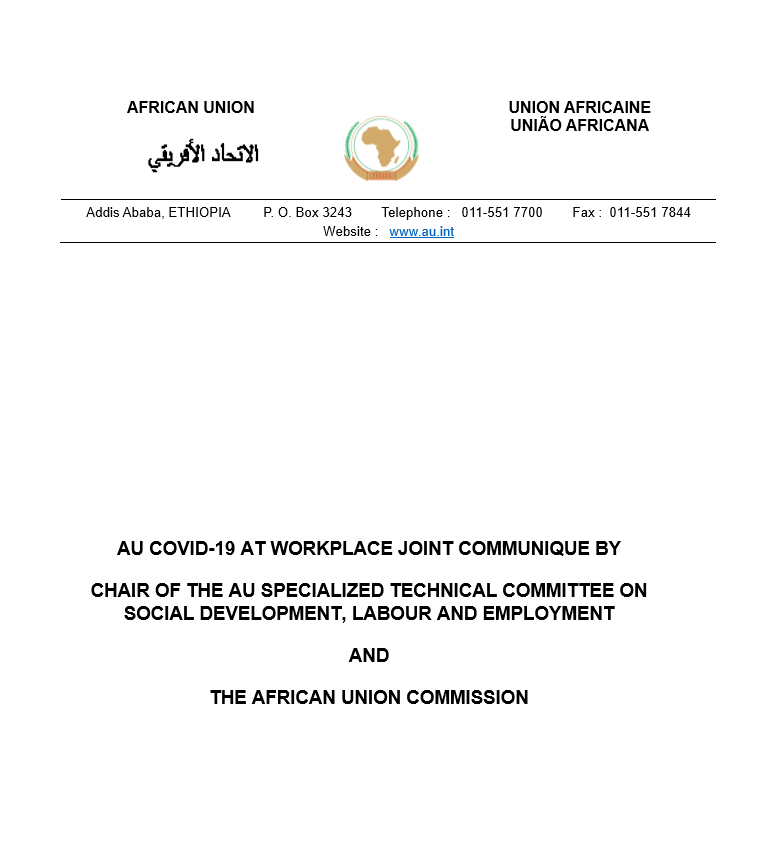On 30 January 2020, the International Health Regulations Emergency Committee of the World Health Organization (WHO) declared the Coronavirus Disease (COVID19) a Public Health Emergency of International Concern (PHEIC). On 27 February 2020, the WHO published advice on getting your workplace ready for COVID-19. The publication advised that the Ministries of Labour collaborate with Ministries of Health to define COVID-19 Guidance for Businesses, Employers and Employees. This declaration came as the world of work in Africa is operating within the context of the Africa Continental Free Trade Area (AfCFTA) and progressive accelerated industrialization trends. To keep and lift the place of Africa in the global competition, there is need to preserve the skilled and healthy workforce on the continent in the context of the COVID Pandemic. Governments on the continent are issuing guidelines to prevent COVID-19 at the workplace and mitigate its impact on the workers. For example, on 17 March 2020, the Department of Employment and Labour of South Africa unveiled guidelines to deal with COVID-19 at workplaces. Likewise, Uganda Ministry of Gender, Labour and Social Development issued guidelines and considerations for Employers on 20 March 2020. Senegal published a ‘Workplace and COVID-19” guidance. In Namibia, the Ministries of Labour and Health set up a SMS Line for reporting on COVID-19 related complaints at the Workplace. Kenya set up an Occupational Safety and Health Advisory to help minimize the spread and reduce the economic impact of COVID-19 in workplaces. The Ministry of labour of several other countries have adopted COVID-19 guidelines for employers (Morocco) or in the world of work (Algeria). The laws and regulations on mandatory Occupational Safety and Health (OSH) standards require employers to protect the employees from contract the virus which will help in minimizing the spread of the infection. This requires that employers to provide employees with a workplace free from recognized hazards likely to death or serious physical harm. Organisations must protect the employees from the risk of infection that exists at work due to contact with colleagues and other users of the enterprise as is the case with COVID-19, an easily transmissible infection disease with significant health risk. Among other relevant instruments for the prevention and mitigation measures are the Employment Act and Collective Bargain Agreement. Employers should develop appropriate policies and strategies in their efforts to address health condition workers related to the COVID-19 in the work place. However, in the absence of unemployment insurance in majority of Member States, there are very limited resource to cushion the COVID-19 impact on the welfare of employees who can lose their job.
